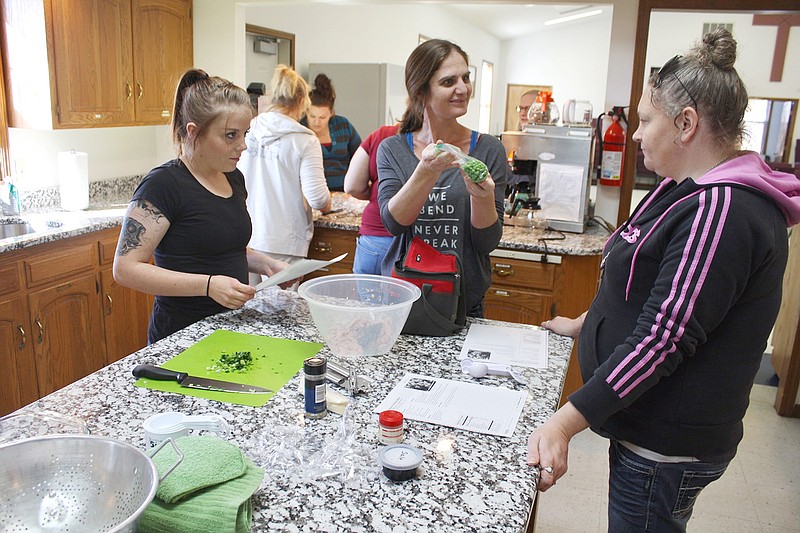Residents of the Fulton Women's Community Supervision Center grow bonds as they learn life skills.
Held at the Central Christian Church, the Cooking Matters class is designed to help those with tight food budgets master the skills needed to cook healthy meals.
Lynda Zimmerman, county engagement specialist in nutrition and health education at the University of Missouri Extension, leads the class and learned about the Community Supervision Center at a Callaway Resource Network meeting.
"I heard about the potential for the partnership at our inter-agency meeting and thought, 'Hmm, maybe I should contact them,'" Zimmerman said.
Zimmerman said 11 women from the center are signed up for the class. This is the first year the extension has taught this class to center residents, but teaching classes around the state is part of the extension's mission.
"Here, you can directly benefit from learning the skills of cooking to spread your food dollars. Cooking has become sort of a lost art," Zimmerman said.
At last Thursday's class, the educational section of the program focused on the importance of fruits and vegetables. Heather Warren, nutrition program associate for the University of Missouri Extension, shared tips on portion sizes, daily values of fruits and vegetables, and the importance of choosing a variety of colors.
After the lesson, the residents took to the kitchen where they split into groups and received roles to help cook their respective dishes. Zimmerman also made sure to accommodate one of the resident's milk allergies by substituting an almond-based yogurt in place of dairy yogurt.
"You may have children or family members who need these kind of (substitutions) so this is a real-life example of what might come up," Zimmerman said.
The residents made a tuna pasta bake, cranberry walnut coleslaw and lime-infused water. A couple of tweaks to the original recipes (such as using tuna instead of salmon) made the meal even more budget-friendly. The program runs a total of six weeks, and Zimmerman has been pleased with participants' progress two weeks in.
"(This program) has been wonderful. Just looking around, you see that they just jump right in and they work really well together," she said.
Many of the participating residents expressed gratitude for the skills they've learned from weekly classes.
"Growing up it wasn't a very good place to be so I didn't learn a lot of skills. This class has helped me learn so much," Jaqueline Messmer said.
Another participant, Mickie Moss, said: "I love being able to get to know the girls and their stories while we're here."

